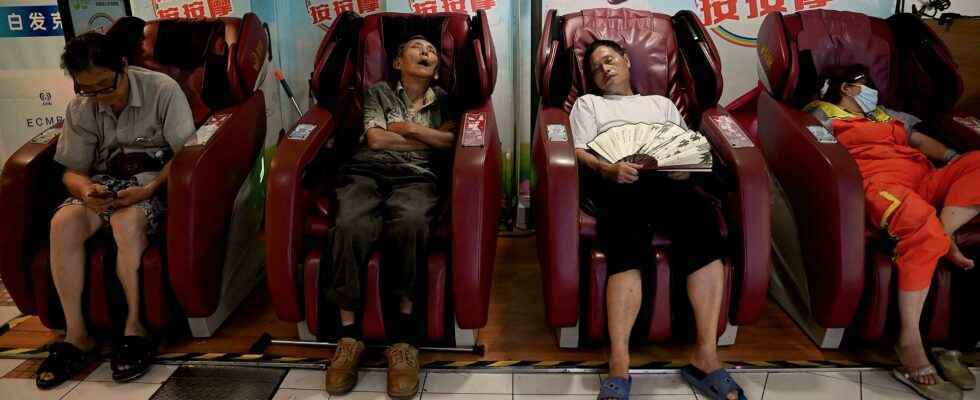In Chongqing, where the mercury reached 42°C in the Chinese city, residents took refuge in the air-conditioned corridors of the metro.
To escape the 42°C on the surface, they go underground: residents of Chongqing (southwest), a municipality-province affected by the unprecedented heat wave that is hitting China, take refuge in the air-conditioned corridors of the metro. Several areas in the southern half of the country are currently experiencing the strongest heat wave since the establishment of national weather records in the 1960s.
The heat wave dries up the rivers and contributes to the drop in production of hydroelectric power stations. A situation that has prompted the authorities to ration electricity, in particular by closing factories and reducing public lighting. In Chongqing, one of the hardest-hit cities, mostly elderly residents flee the stifling heat during the day by reaching the depths of the subway, to take a nap, read or play cards. Seated on stools, cardboard boxes or upturned buckets, some are maintenance workers on a break or workmen, others are residents of the neighborhood or unemployed retirees.
An unprecedented heat wave?
A recent outbreak of Covid-19 in the municipality-province of 32 million people has triggered mandatory testing for 10 million of them. But in the subway, few people wear the mask. Around them, travelers continue to crowd the corridors to go to their place of work or return, a sign that economic activity continues despite the heat wave. Near the metro entrance, in a crowded supermarket, some locals also come to seek a little freshness.
With a smile, a manager explains that many of those who go to the metro have air conditioning at home, but are bored and prefer to come and chat in the cool with their friends. The intensity, extent and duration of this heat wave could make it one of the largest on record in recorded history, according to climate experts.
